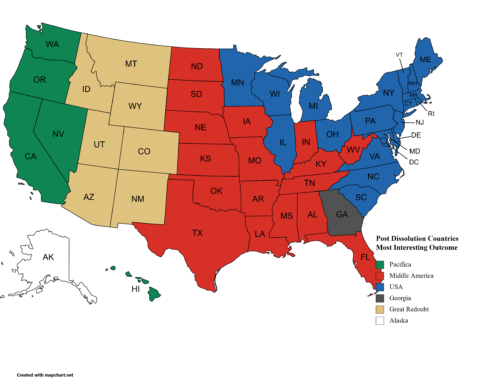Perhaps it is time to have an internal dialogue within the Government and between our treaty partners about precision in language about what an ally is and isn’t. And if necessary, we ought to take the bold steps of making formal changes to whom we call allies. It matters. I would contend allies and coalition partners are very measurably different. Coalition partners share short-term interests. Allies share deep and enduring virtues and values. As values evolve or change, so do and so should coalitions and alliances.
Again, it matters. Who you associate with says something about you. We all know the difference between a business associate, an acquaintance, and a friend. We make those distinctions to protect our reputations and those of our friends. We ought to do the same in international relations.
Over the past three days, the Washington Post has published detailed pieces on Turkey and Saudi Arabia, whose recent and ongoing actions are leading to increased discussions in Washington and European capitals about how far we allow our allies to go before those ties are broken.
In “Saudi Arabia Is Facing Unprecedented Scrutiny From Congress,” the Post discusses how Congress has let the genie out of the bottle by openly and harshly criticizing the Kingdom for its ties to terrorists and the conduct of its war in Yemen. Yet at the same time, Congress refuses to halt arms sales to Saudi Arabia as a sanction for its actions. The article calls Saudi Arabia a “long-time US ally” and a “critical ally in the war on terror.”
The Post quotes Senator Chris Murphy of Connecticut: “We have largely turned the other way and allowed for the Saudis to create a version of Islam which has become the building blocks for the very groups that we are fighting today. And we have plead with them, we have asked them to stop, and the evidence suggests they have not…We have told them the targets not to hit, and they have not listened. And so I do think it’s time to question whether this alliance is as clear and as solid as many of us may have been told it was.” That is a relevant and appropriate discussion to have in the halls of Congress and in the White House.
In “The Aftermath of Turkey’s Failed Coup Threatens Its Ties With Western Allies,” the Post contrasts Turkey’s anger at the US and Western Europeans for focusing on the crackdown after the coup attempt instead of what Turkey sees as the greater problem of the US sheltering Fethullah Gulen, who Turkish President Erdogan sees as the instigator of the coup. Western leaders are concerned when Turkey imprisons 40,000 people, fires 100,000 workers, and sacks 40% of it’s generals. Yet after the coup attempt, Turkey’s Prime Minister said last week that his country needs no democracy lesson from the US.
European leaders that have considered bringing Turkey into the EU have seen Turkey turn away from its secularist recent history and curtail civil liberties during the 14 year Erdogan rule, the very period during which Turkey petitioned to enter the EU. This at the same time the EU desperately needs Turkey to uphold its commitment to stem the migrant flow into Europe. Again, relevant and appropriate topics to discuss at the highest levels.
OK, back to semantics…allies vice coalition partners. In both these articles, the key underlying point is that long-standing alliances are in danger of collapse. I would argue that while Turkey was an ally, it no longer is, and that Saudi Arabia never has been. Allies are those countries with which we so closely share certain enduring core virtues and values, namely liberal democracy and individual liberty, that those alliances survive and endure through changing governments during routine elections.
Those alliances are unquestioned when it comes to the survival of those very countries and the values on which they and the alliances are built. These countries are easily recognizable. Nobody would argue that Britain, Germany since WWII, Italy, Norway, Japan since WWII, Australia, New Zealand, and many others, are allies that share core democratic values with the US.
Coalition partners, on the other hand, share an interest, or set of interests, be they short-term, or long-term, for which they are willing to cooperate on a spectrum ranging from public discussions to waging war against a common foe, but always for a specific and limited objective. These are not interests which would necessarily demand immediate action from allies. France fought with the US during Desert Storm and stood with the US after the 9/11 attacks with NATO military support, but it refused to fight the second Gulf War in 2003 deeming that to be outside of their own interests. Those decisions show the difference. Americans who were livid that the French would abandon their long-standing allies in 2003 didn’t understand the important and necessary distinction between the fundamental values the alliance is based on and the short-term interest that the countries disagree on.
Again, this is important in both the short-term and long-term for countries on both sides of a divide. Washington realizes that Turkey’s leadership has turned the country away from the enduring values that made them an ally in the past. But Washington and Ankara both still share very important common interests. Those interests are strong enough that Washington sent members of the Justice Department to Turkey to help them craft an extradition request for Gulen that would pass muster in Washington. But that help is limited and short-term. It isn’t enough to cause the US to militarily intervene in that country to protect the regime as it would be in Paris or London.
Alliances ought to have a different level of relationship than coalition partnerships. It says something about who you are. On another level, a business leader might have such a deeply shared value with a partner business that the leader would instantly commit resources to help said allied business if it gets in trouble. Likewise, you all, as individuals, know who you would instantly get on an airplane to go help with personal issues. Others, you might feel sorry for, but your closest friends, those with whom you share the deepest value connection, you help when they are in great need. You gently and lovingly rebuke them when they go down a path you don’t agree with, but when they’re unjustly threatened, you’re there for them.
That is how alliances and coalition partners need to be differentiated. Long term-values ought not change very often. They may slowly evolve, but they’re going to be consistent. Short-term interests change. They may even change during an ongoing operation. That ought to be expected. We should not be afraid or ashamed to call allies allies and short-term coalition partners such. Pretending otherwise is unhealthy for both domestic and international relationships.
Some will argue that these are minor distinctions. They’re not.
Read more at www.bgcts.com.
Keep thinking…






Leave A Comment